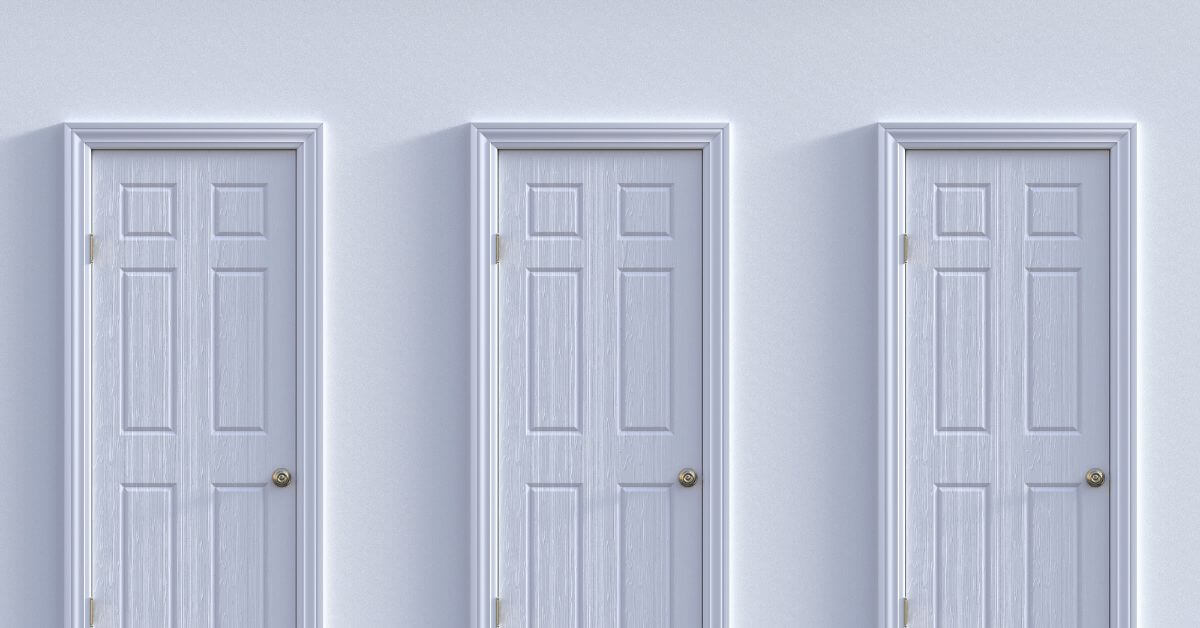FHA loans are popular among first-time homebuyers with their flexible lending guidelines. Unlike in other conventional mortgages, you can buy a home with a credit score as low as 500 and a downpayment of 3.5%. These benefits are just some among others.
But of course, FHA loans have their own set of disadvantages when put against the also-popular conventional loan. In this article, we will discuss the strengths FHA loans possess and their weaknesses. This will help you decide which type of loan will work for you.
What is an FHA Loan and How Does it Work?
Before we discuss the benefits the FHA loan provides, let’s have a quick recap on what the FHA loan is and how it works.
Basically, FHA loans help lower to middle-income families purchase a home. In fact, they are most popularly used by first-time homebuyers.
This is because the FHA loan boasts lower credit scores and down payment requirements.
The flexibility of an FHA loan is possible because the FHA doesn’t actually give loans, it insures them. Lenders are willing to negotiate with individuals with less-than-stellar credit scores and histories because the FHA will cover and deal with the hassle of foreclosure if the borrower defaults.
You can read more about the FHA loan requirements here.
Moreover, there are actually different types of FHA loans for different financing purposes. These include:
- Home Equity Conversion Mortgage (HECM) – A reverse mortgage program that helps seniors convert the equity in their homes to cash while retaining the home’s title.
- FHA 203(k) Improvement Loan – This loan rolls together the cost of repairs and renovations into the amount borrowed. If you want, you can read up on the 203(k) requirements.
- FHA Energy Efficient Mortgage – Similar to a 203(k) loan but focused on upgrades that can lower your utility bills
- Section 245(a) Loan – This program works for borrowers who expect their incomes to increase with lower monthly payments that gradually increase over time.
What are the Pros and Cons of an FHA Loan?
Now let’s have a breakdown of the pros and cons of an FHA loan.
Pros of an FHA loan
Listed below are some of the key advantages of FHA loans as indicated in an article on Benefits.gov.
- Less than perfect credit: Perhaps the most spoken of the benefit of an FHA loan. You only need a minimum credit score of 580 to get up to 96.5% financing. Even with a lower credit score of 500-579, you can still qualify. Moreover, even those with credit problems, such as bankruptcy, have a chance of qualifying.
- Low down-payments: FHA loans have a low 3.5% down payment. If you have a credit score lower than 580, then the minimum is 10% down. These rates are considerably lower compared to other loans.
- Lower rates: FHA loans have lower interest rates since the federal government insures the loans. But it can be different from person to person – make sure to compare an FHA loan with other types of loans.
- Easier to qualify for: Everyone has unique circumstances in buying a home, but the FHA encourages lenders to be more flexible and willing to give you terms that will make qualifying easier. Again, this is possible since the federal government insures your mortgage, reducing the risk on the lender’s end.
Cons of an FHA Loan
The FHA loan also has its own set of cons or disadvantages.
- MIP is not cancellable: Perhaps the biggest con of getting an FHA loan is Mortgage Insurance Premiums (MIP) that cannot be canceled. At the beginning of every FHA loan, you put down 1.75% as your UFMIP or your Upfront Fee MIP. Then every year you pay around 0.45–1.5%, depending on your loan term, which is divided into every month of the year. For conventional loans, insurance payment disappears when you have22% equity in your property. But for many FHA loans, it’s required for the life of the term. The exception is if you put a down payment of 10% or more. If you did, your MIP will fall off in 11 years. The other exception is refinancing your FHA loan into a conventional loan or a streamline refinance into another FHA loan that will lower your MIP rate.
- Many condos are not approved. Since the FHA is issued by the government, it can be stricter when it comes to following the approval process. The process for an FHA-approved complex is more complex than for an FHA-approved house. It requires the standard appraisal safety checks, the financial viability of the condo complex, and completed paperwork by the borrower and condo association among others. The truth is many condominiums aren’t approved because the developers didn’t go the extra step to have the entire property approved since they are not interested in being approved for FHA loans anyway.
- For primary residences only. FHA loans are meant to help homebuyers and not real estate moguls or investors. Because of this, the FHA has put in place that your property must be used as a primary residence for the better part of a year.
- Loan limits are based on region. FHA loans generally have lower loan limits than conventional loans. This limit is different for every region.
Why are FHA Loans Beneficial to Lenders?

With most conventional loans, lenders are stricter with their qualifications. Why? To reduce the risk of the borrower defaulting or to lessen the blow if the borrower defaults.
But with FHA loans, the federal government insures the lender which means that the lender will not deal with the risks that come with lending to a borrower. This allows them to offer lower rates and an easier qualification process.
It’s a beneficial deal for both the borrower and the lender. Another big thing is to find the right lender for you. Certain lenders may have different requirements and guidelines.
Some Sellers Don’t Like FHA Loans
Although lenders can cut a fair deal with FHA loans, some sellers may not. This is another hurdle when it comes to FHA loans.
According to Mortgage News Daily, a survey done by the National Association of Realtors (NAR) revealed that 89% of sellers would be likely to accept an offer from a buyer with a conventional loan while only 30% for government-backed loans.
Another survey by NAR revealed that the most common reasons why sellers rejected the buyers with an FHA loan offer are: other buyers had non-contingent offers, another buyer made a cash offer, home appraisal, low down payment, and stricter home inspection requirements.
Is FHA Better than Conventional Loans?

Let’s break down the difference between an FHA and Conventional loan.
| FHA Loan | Conventional Loan |
|---|---|
| Lower credit score requirements Requires a minimum credit score of 580 to qualify for 96.5% financing (or 3.5% down payment). | Higher credit score requirements Most require a credit score of 620 to qualify. |
| Allows higher Debt-to-Income (DTI) ratio FHA allows a DTI of 43% but the maximum DTI is 57%. It just comes down to being able to fulfill your monthly mortgage payments. | Requires a lower Debt-to-Income (DTI) ratio Generally, conventional loans indicate a maximum DTI of 43%. |
| Non-cancellable mortgage insurance Mortgage insurance for FHA loans is usually life-term deals, unless you pay more than a 10% down payment or refinance later into a conventional loan. | Mortgage insurance falls off when 20% equity is achieved You are required to pay insurance if you put down less than 20% or lose 20% equity in your home. If you have 20% equity, your mortgage insurance falls off. |
| Lower loan limits This may differ from year to year and county to county. This is the loan limit for 2025. Single family homes: $420, 680 ($970,800 for high cost areas) | Higher loan limits This may differ from year to year and county to county. This is the loan limit for 2025. Single-family homes: $647,200 ($970,800 in high-cost areas) |
| For primary residences only | Can be used to finance a primary residence, vacation home, or investment property |
The Bottom Line
FHA loans aren’t perfect, but they’re pretty dang close.
FHA loans have many pros that are especially beneficial to those that don’t have perfect credit history or those that are low to middle-income earners. However, its cons must be acknowledged as well. Some of these include the non-cancellable MIPs and its discouragement to certain sellers.
Now that you know both sides of the coin, it’s up to you to decide if an FHA loan is the right fit for you.
The good news…is that we’re here to help you.






